
Below is a sample of the emails you can expect to receive when signed up to IVCC.
|
2 Billionth Net Distribution! No images? Click here 

2 Billionth Mosquito Net Distribution
This year we’re celebrating the distribution of the 2 billionth insecticide-treated net! For fifteen years, these nets – among the most effective technological advances to fight malaria – have contributed to 68% of the malaria cases prevented through control interventions in Africa. On January 16th, the global community is taking a moment to recognise this important achievement and your part in reaching it. To mark this achievement, we worked with partners to produce a short video celebrating the global partnerships that have worked together over the past fifteen years, the success of the insecticide-treated net as a critical tool against malaria, and the importance of continuing to invest in this fight. We want to include everyone who has played a role in reaching this important milestone over nearly two decades. Please see shareable resources to engage on social channels in our social media toolkit, available in English, Spanish, and French. We look forward to continued collaboration for a future free of malaria.
Learn More Here

IVCC
Liverpool School of Tropical Medicine Pembroke Place Liverpool L3 5QA You are receiving this email as your details are in the IVCC database.
Preferences | Unsubscribe
|
|
The very latest news from IVCC. No images? Click here 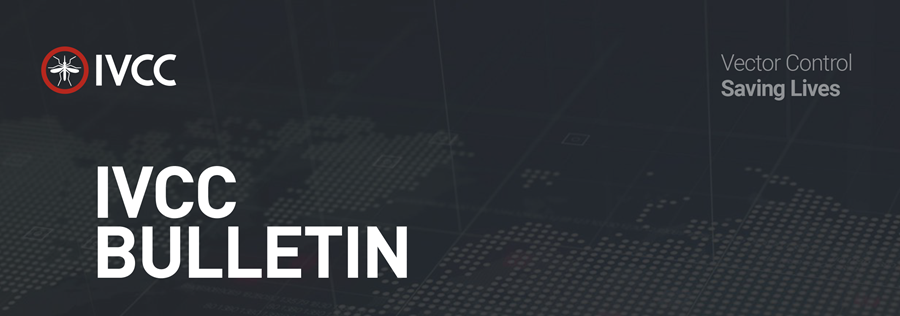
JANUARY 2020 IVCC UpdatesTech Update 
The IVCC Tech Update is a collection of vector biology and control news, publications and resources published on a quarterly basis. It is primarily focused on Anopheles vectors and a subset of vector control topics relevant to IVCC and its partners. Read more > Stakeholder Forum 

Under the theme, ‘Partnering for Impact’, IVCC hosted its first Stakeholder Forum in three years, in its home town of Liverpool, late last year. A series of inspiring and thought-provoking sessions ensured that key challenges were discussed and debated by distinguished guests drawn from all corners of the malaria community Read more > Landmark Volume Guarantee 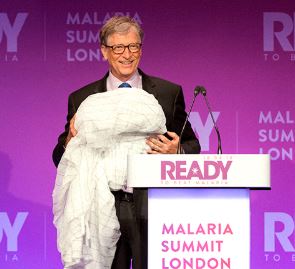
IVCC played a part in milestone which will accelerate the availability of the latest mosquito net technology for communities with greatest needs. The joint announcement made by BASF, MedAccess and the Bill & Melinda Gates Foundation is a key achievement for public private partnership and supports the objectives of the New Nets Project. Read more > IVCC Supporting PAMCA 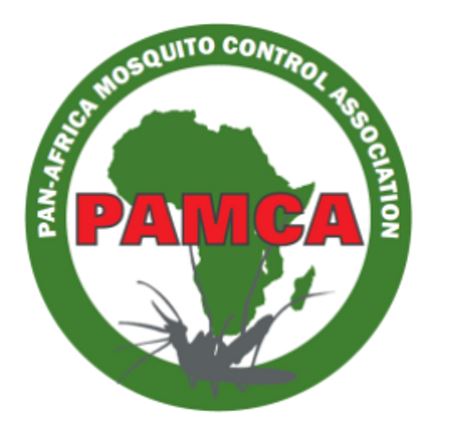
IVCC had a strong presence at last years’ Pan African Mosquito Control Association (PAMCA) conference held in Yaoundé, Cameroon. IVCC held a symposium on vector control innovations, which delivered the latest research on the expanding vector control toolbox. Read more > Indo-Pacific Region Vector Control 
IVCC has been awarded a 5 year grant from Australia Aid for the development of a vector control product toolbox for the Indo-Pacific Region. IVCC aims to leverage and adapt its robust pipeline of innovative vector control solutions to maximise the opportunity to save lives in the region. Read more > NgenIRS 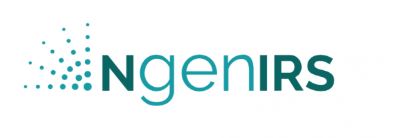
NgenIRS was a four year partnership (2016-2019), led by IVCC and funded by Unitaid, that included the US President’s Malaria Initiative, The Global Fund, Abt Associates and PATH. The market shaping intervention project had $65.1 million funding and worked in close collaboration with leading insecticide manufacturers, national malaria programmes and other stakeholders to increase the use of 3rd Generation Indoor Residual Spraying (3GIRS) products. NgenIRS has just published fact sheets summarising the impact and cost effectiveness of 3GIRS in combination with Long Lasting Insecticidal Nets (LLINs) and other interventions. New Nets Project 
IVCC leads a consortium of partners on the New Nets Project (NNP), which will pilot insecticidal nets treated with new insecticide combinations in moderate to high transmission areas throughout sub-Saharan Africa. The project is funded by Unitaid and The Global Fund, with supplementary funding from the Bill & Melinda Gates Foundation and USAID. Ultimately the project and its partners seek to not only establish the necessary evidence base needed to support an appropriate policy recommendation from WHO, but to also make the new nets a sustainable choice for countries looking for the best value for money in controlling malaria. Learn more > New PublicationsAnnual Report 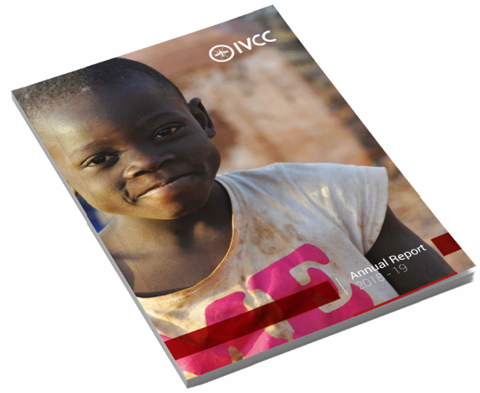
The IVCC Annual Report 2018-2019 has been published. The report showcases our work to facilitate innovative approaches to preventing vector-borne diseases and tackle the growing threat of insecticide resistance. With activities across the globe and spanning research and development and market access, we are accelerating the process from innovation to impact. Read more >
Landscape Studies 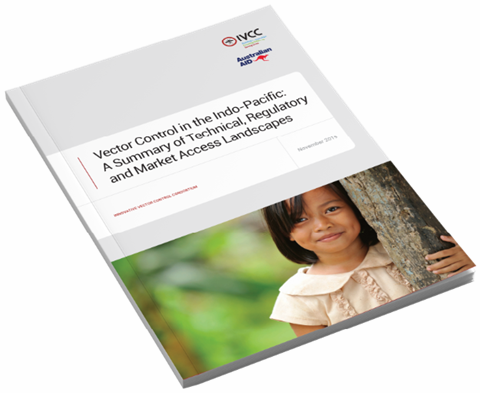
IVCC has published the results of three landscape studies which will provide the platform for a series of bespoke product intervention strategies in the Indo-Pacific region. We aim to begin addressing the growing threat of vector-borne diseases in the region by providing a comprehensive analysis of the technical, regulatory and market access environment for vector control. Read more > Impact Modelling 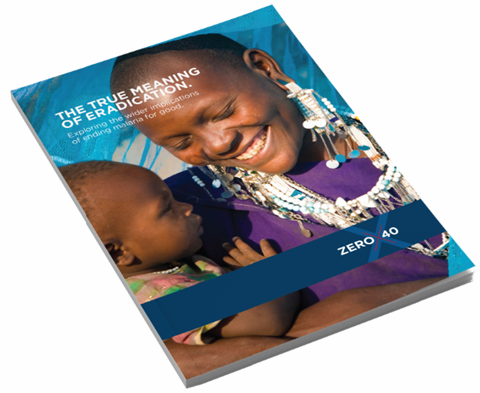
As part of ZERO by 40 IVCC set out to analyse the potential economic and societal impact of malaria on rural communities, across sub-Saharan Africa. The result is this research which explores how the prevalence of malaria can have a major influence on not just health but also wider aspects of rural life, such as poverty rates, labour productivity, education and gender equality. Read more > Events
PodcastsThe Future of Vector Control In this podcast, hosted by the Indo-Pacific Centre for Health Security, IVCC CEO Dr Nick Hamon and consultants Dr Michael MacDonald and Vasanthan Paul John talk about innovative vector control tools, the market and regulatory landscape for these tools, and the importance of research and development to reduce malaria, dengue, Zika, and other vector-borne diseases. 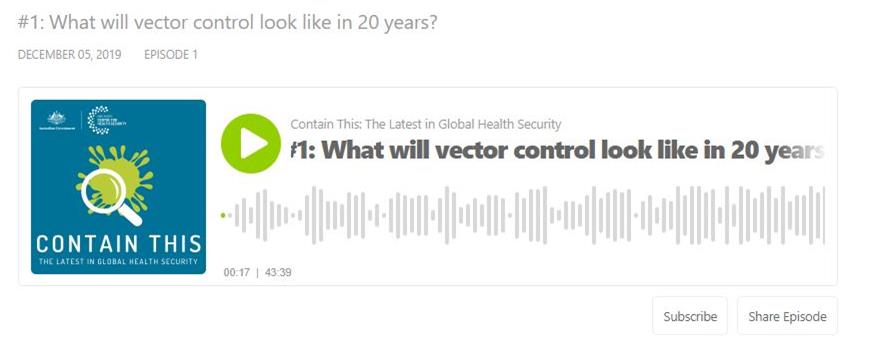
New Nets for Vector Control In this podcast Unitaid interview David McGuire (Programme Director NgenIRS and New Nets Project) about LLINs with new insecticide combinations, how they may impact insecticide and how the New Nets Project is building the epidemiological evidence needed to allow WHO to consider making a new policy recommendation for their use. 
Vector Control News2 Billion Nets DeliveredThis month, led by the RBM Partnership to End Malaria, the global malaria community celebrated the delivery of the 2 billionth insecticide-treated net (ITN) since 2004.The development and scale up of these nets are responsible for 68% of the malaria cases prevented in Africa since 2000 (S.Bhatt, 2015), contributing to global efforts that saved more than 7 million lives and prevented more than 1 billion malaria cases. Read more about vector controls role in malaria eradication> 
World Malaria Report 2019 Malaria continues to strike hardest against pregnant women and children in Africa - causing 405,000 deaths in 2018. The World Malaria Report calls for increased support of R&D efforts for new tools. Read about the importance of vector control in malaria eradication in this years report and discover more about our R&D pipeline on our website. 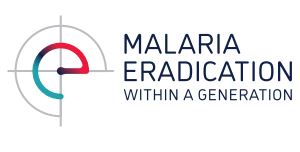
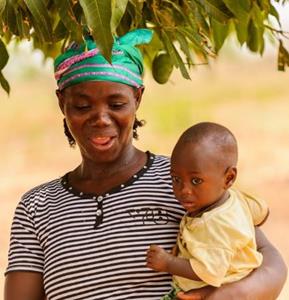
World Malaria Report 2019 Malaria Eradication within a Generation The Lancet Commission on Malaria Eradication lays out the necessary steps to eradicate malaria within a generation. Steps in this ambitious goal include an even greater financial outlay, strengthening malaria programmes and global leadership, and acceleration of R&D. Read more > 
IVCC
Liverpool School of Tropical Medicine Pembroke Place Liverpool L3 5QA You are receiving this email as your details are in the IVCC database.
Preferences | Unsubscribe
|
|
No images? Click here 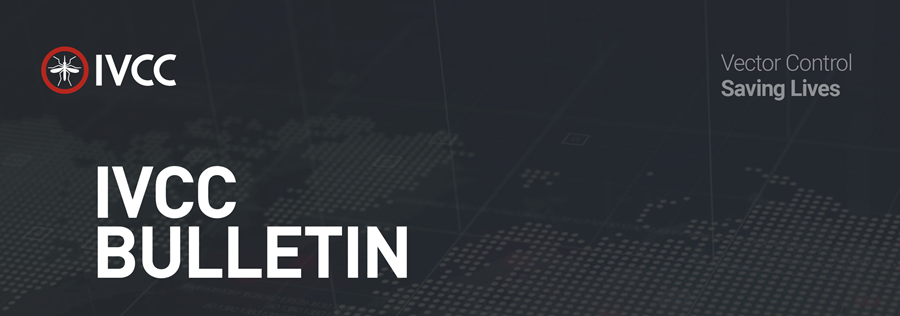
CHRISTMAS 2020 
Dear Friends and Colleagues, As we began 2020, none of us expected or could have imagined the year it would turn out to be – a global pandemic as well as economic and political instability in many parts of the world. All of us are hoping for a Phoenix-like renewal in 2021, and a vaccine will hopefully allow us to return to the way of life that I’m sure we all miss and cherish. The year has been extremely challenging in some way or other for all of us, including us here at IVCC. I am extremely proud of how the IVCC team has kept moving our organisation and programs forward and how everyone has supported each other during these difficult times. As our lives start to return and adjust to ‘the new normal’, IVCC will look to capitalize on the lessons learned from COVID-19 – both in terms of both global public health and as an organization. In particular we will look how to capitalize on the increased global awareness of the importance of global health security, and accelerate the development of our pipeline interventions in the same way that has led to multiple COVID-19 vaccines in record time without compromising safety. In 2020, IVCC went through a very thorough strategy refresh to establish a clear path to what we will deliver by 2025 and beyond. I have drawn out a few highlights from the year which I hope you will be interested to read about. You can find a wealth of additional information on the great progress we are making on our website, our recently published annual report or via our quarterly newsletter. As we all prepare for Christmas and a well-earned break, I hope that you are able to find the time to relax and, where possible, spend time with your families. 2021 will bring many new challenges but I’m confident that, with your support we will be able to successfully deliver on our mission to save lives. Merry Christmas and a Happy New Year to you all Nick Hamon 2020 HighlightsAnnual Report 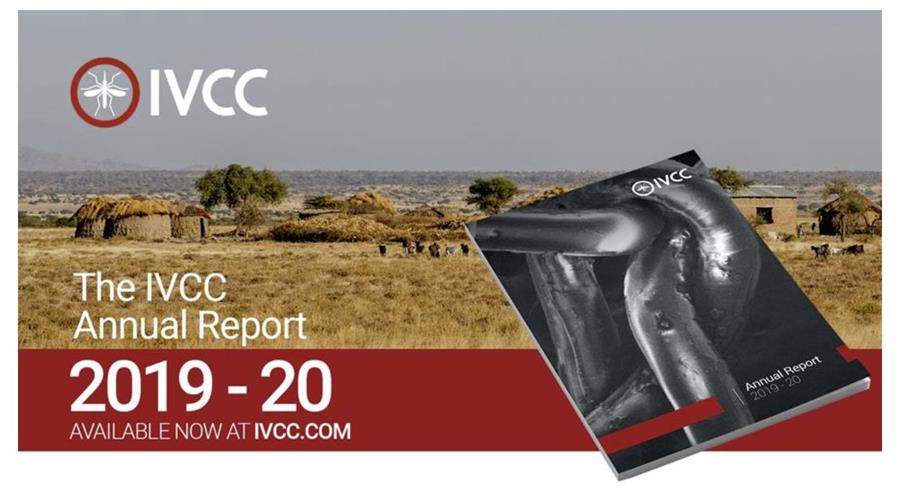
Download > NgenIRS End of Project Evidence 
View evidence materials > Ambassador Pack 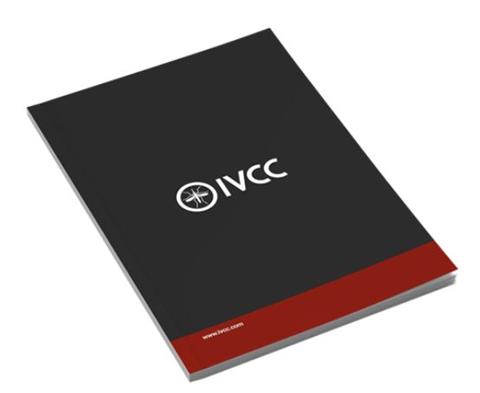
Read >
10 Challenges, 10 Solutions 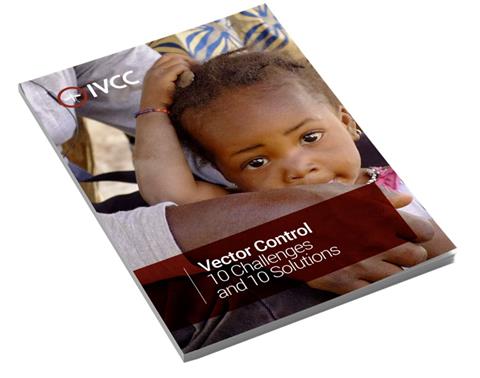
Read > IPI Landscape Studies 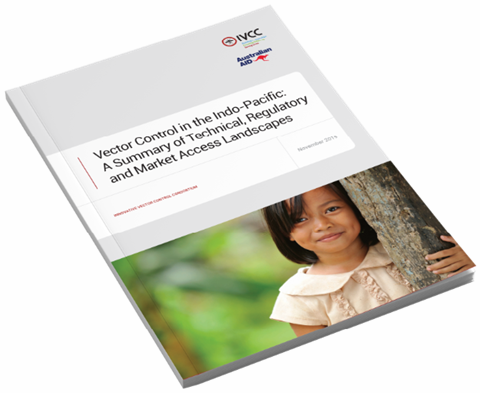
Read > Vector Control MOOC 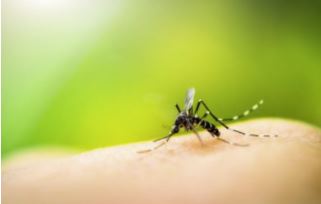
Learn more >
New Nets Project 
Learn more > COVID-19 and ZERO by 40 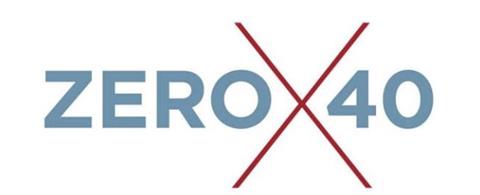
Learn more > Tech Updates 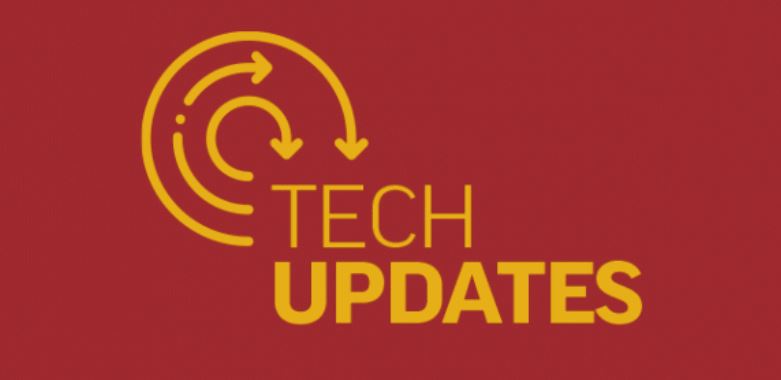
See all Tech Updates > 
IVCC
Liverpool School of Tropical Medicine Pembroke Place Liverpool L3 5QA You are receiving this email as your details are in the IVCC database.
Preferences | Unsubscribe
|
|
No images? Click here 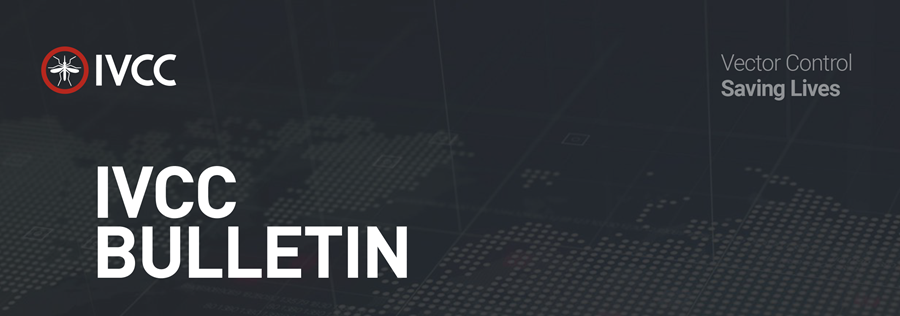
AUGUST 2020 IVCC UpdatesTech Update 
The IVCC Tech Update is a collection of vector biology and control news, publications and resources published on a quarterly basis. It is primarily focused on Anopheles vectors and a subset of vector control topics relevant to IVCC and its partners. Read more > World Mosquito Day 2020 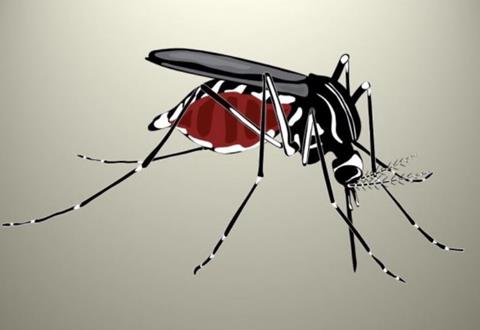
This month was World Mosquito Day, declared to mark the discovery, in 1897, that female mosquitoes transmit malaria. In this blog we look at the role of vector control in the elimination of malaria and other vector-borne diseases. Read more > IVCC in the 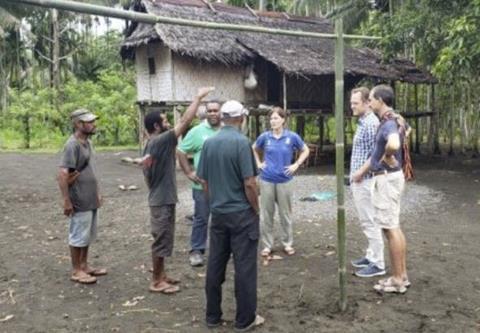
On Friday 21st August, APLMA heldthe second of its Malaria Gamechangers round table series. It focused on vector control and was co-sponsored by IVCC and RBM Partnership to End Malaria.This blog explores IVCC''s work in the Indo-Pacific Region. Read more > Lessons from an Insecticide Testing Facility 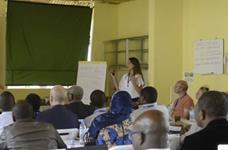
A new paper by Sara Begg identifies the enablers and barriers that led to the KCMUCo-PAMVERC trial site achieving GLP certification. The lessons learnt are transferable to other African trial sites. Read more > ZERO by 40 and COVID-19 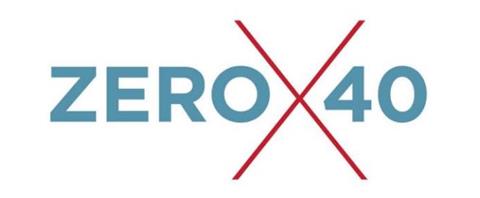
As the world contends with COVID-19 we are reminded of the importance of collaboration and innovation to tackle infectious diseases. The ZERO by 40 partners have released a joint statement on the urgent need to continue vector control at this time. Read the full statement > Volcanic Glass Spray 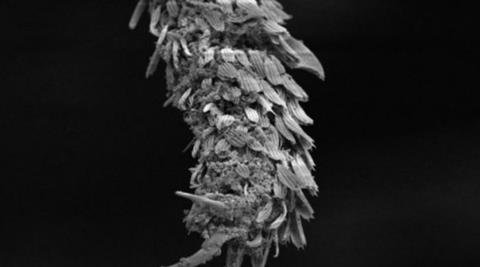
IVCC supports a study by North Carolina State University entomologists and Imerys Filtration Minerals Inc. to test an indoor residual spray made by combining a type of volcanic glass with water. In the study Imergard WP – an insecticide created from perlite – was tested. Learn more > LITE - New Website 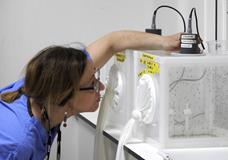
LITE (Liverpool Insect Testing Establishment) has launched a new website. LITE was established by Liverpool School of Tropical Medical (LSTM) and funded and supported by IVCC. LITE is a facility that tests new insecticides or repellent based products against a wide range of mosquito populations. Visit the website > Project BITE Announcement We are working with a consortium of partners to prevent malaria transmission by reducing human exposure to mosquito bites outdoors. As part of the Indo Pacific Initiative, with funding from the Australian Aid, the Malaria Elimination Initiative (MEI) at University of California, San Francisco, is leading Project BITE (Bite Interruption Toward Elimination) over three years, 2020-2022, to evaluate new bite prevention tools for high risk populations in the Greater Mekong Subregion (GMS). Read more > New PublicationsAmbassador Pack 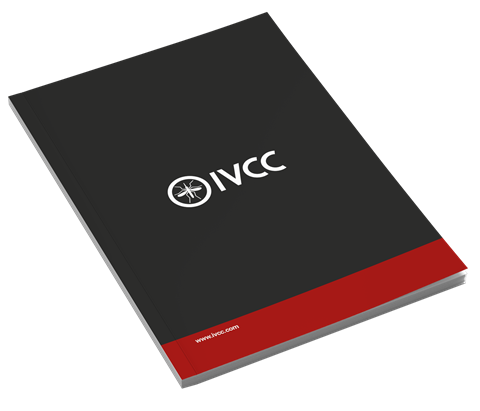
IVCC has developed its new ‘Ambassador Pack’ which is now available digitally or in hard copy version. The Pack contains 14 loose leaf pages which cover the broad spectrum of IVCC’s work, including Product Development, Key Highlights and Market Access workstreams. The pack also contains an updated version of the IVCC strategy which was completed earlier this year. View the online Ambassador Pack >
Spatial Repellents Report 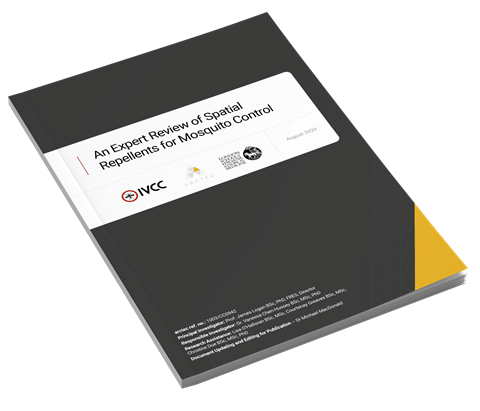
Indoor Residual Spraying and Long Lasting Insecticidal Nets have been very effective in the fight against malaria, but they will not lead to eradication on their own, there is an urgent need to control vectors which bite outdoors. This report, published with ARCTEC, examines the potential role of spatial repellents in public health through published and grey literature, and the opinions of academic and industry experts on spatial repellents. Read more > Vector Control NewsEnsuring Mosquito Net Distribution Could Halve Malaria Mosquito net distribution could help halve the number of deaths from Malaria during the coronavirus outbreak in Africa, researchers say. Writing in Nature Medicine, Imperial’s COVID-19 Response Team estimate that malaria deaths could more than double in 2020 compared to 2019. But swift action could substantially reduce the burden of malaria and prevent joint malaria and COVID-19 epidemics simultaneously overwhelming vulnerable health systems. Read more > Next Generation Chemical Vector Control: Essential Tools in the Battle Against Malaria Policy Cures Research examines targeted global health product innovations and R&D investment landscapes in their new G-FINDER Snapshot series. The first 2020 G-FINDER Snapshot is Next Generation Chemical Vector Control: Essential Tools in the Battle Against Malaria. The report provides a trend analysis of vector control product R&D funding from 2007-2018, a deep dive into the new dual insecticide-treated net (Interceptor G2), and an outlook of the chemical VCP development pipeline. Read more > Climate Change and Malaria This thematic brief highlights the link between climate change and vector-borne diseases. Using malaria to tell the narrative, it lists key actions that policymakers and the public health community can consider in addressing the impact of a changing climate on vector-borne disease. Read more > Interceptor® G2 - Developing a Next Generation Mosquito Net Against Malaria 

IVCC
Liverpool School of Tropical Medicine Pembroke Place Liverpool L3 5QA You are receiving this email as your details are in the IVCC database.
Preferences | Unsubscribe
|
|
No images? Click here 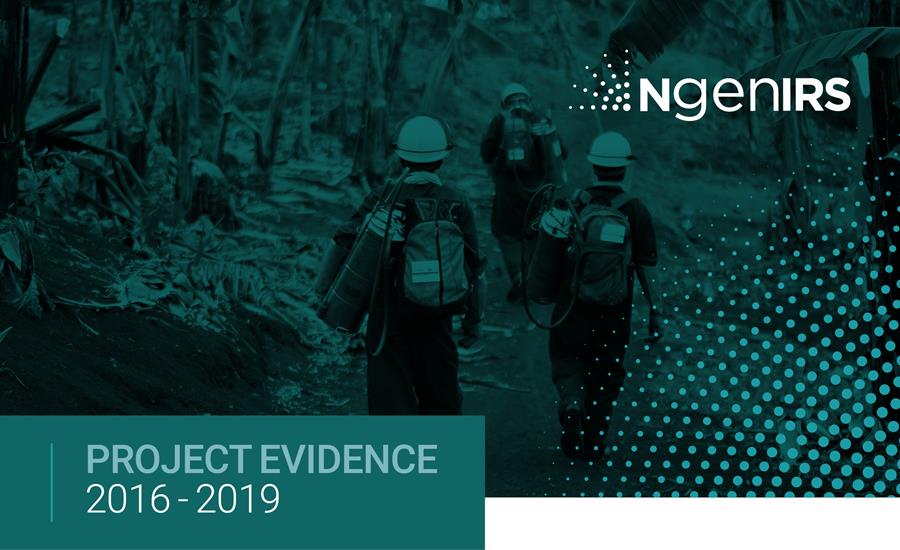

Dear Partners, On December 31st, 2019, the Unitaid funded NgenIRS project came to an end. The NgenIRS team, led by IVCC and made up of colleagues from PATH and Abt Associates, worked in partnership with 16 malaria control and elimination programmes across Africa, the US President’s Malaria Initiative (PMI), the Global Fund and three insecticide manufacturers. The downward trend in IRS use was reversed and the resulting expansion of use has resulted in significant public health impact, savings in commodity costs and new evidence showing the cost-effectiveness of third generation IRS (3GIRS). What’s more, the foundation has been laid to sustain and expand on these successes, providing malaria programmes with more options for rotation and ultimately more lives saved on the path towards malaria elimination. Today we launch a collection of evidence materials, consisting of a video, a project overview and evidence slides (available in both English and French). These materials are available for free download on the NgenIRS web page and IVCC resource library. These materials have been prepared to show the impact of the NgenIRS project and are intended for use by partners and stakeholders who need to communicate the contribution of 3GIRS products to the reduction of malaria. We hope that these are useful to you and advice on use can be found within the materials. I would like to extend my heartfelt thanks to the NgenIRS team and our many other partners who worked tirelessly and selflessly to make this project such a huge success. Although we have achieved great things together, we must maintain this commitment to enhancing and smartly deploying the vector control toolbox if we are to reach our shared goal of malaria eradication. David McGuire
View All Evidence Materials
Website news story > 
IVCC
Liverpool School of Tropical Medicine Pembroke Place Liverpool L3 5QA You are receiving this email as your details are in the IVCC database.
Preferences | Unsubscribe
|
|
As the world grapples with COVID-19, there is a renewed awareness of the effects of infectious diseases and the implications of this on malaria...
No images? Click here 
6 APRIL 2020 Dear Partners, Efforts to limit the spread of COVID-19 are necessary to allow health care systems to continue to serve their communities during this crisis. At the same time, these efforts must not compromise access to life-saving malaria prevention, diagnosis and treatment services or threaten to reverse decades of hard-fought progress against malaria. As long as malaria exists, it threatens the poorest and most vulnerable and has the potential to resurge in times of public health crises – like the one we are facing now. Over the last couple of weeks we have been considering and planning for the implications of the COVID-19 pandemic on malaria and our work in vector control. Today we release a statement on our position, please take the time to read this and reach out if you have any questions about our work and partnerships at this time.
Read Full Statement

IVCC
Liverpool School of Tropical Medicine Pembroke Place Liverpool L3 5QA You are receiving this email as your details are in the IVCC database.
Preferences | Unsubscribe
|
|
No images? Click here 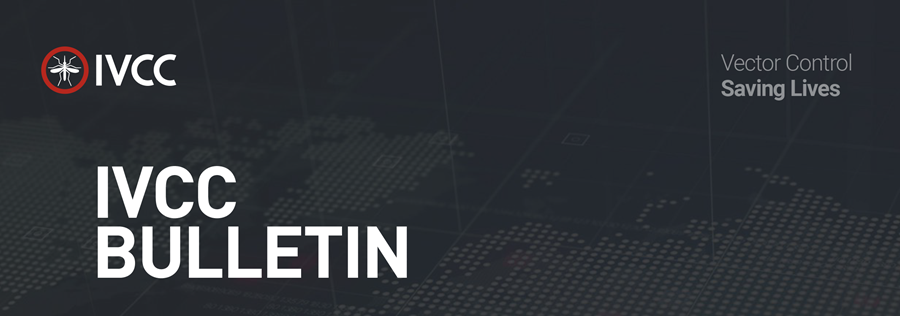
NOVEMBER 2020 IVCC UpdatesTech Update 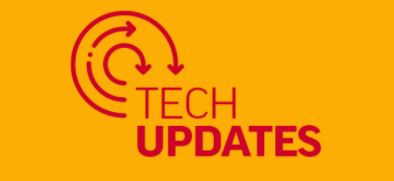
The IVCC Tech Update is a collection of vector biology and control news, publications and resources published on a quarterly basis. It is primarily focused on Anopheles vectors and a subset of vector control topics relevant to IVCC and its partners. Read more > Vector Control MOOC Launched 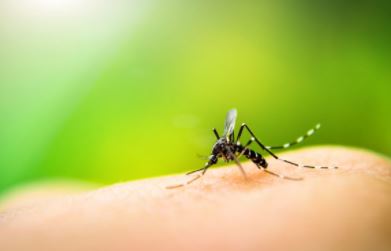
The London School of Hygiene & Tropical Medicine (LSHTM) and its ARCTEC team, IVCC and Liverpool School of Tropical Medicine (LSTM) have launched a brand new free online course on the control of vector borne diseases such as malaria, dengue and Zika virus, to help fight these diseases, which remain as prevalent and dangerous as ever during the current COVID-19 pandemic. Read more > Modelling Research Fellow Joins IVCC 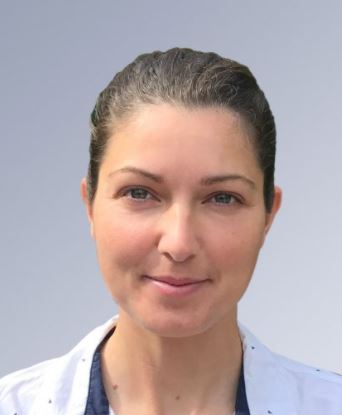
IVCC, in partnership with Imperial College, London, is delighted to welcome Dr Ellie Sherrard-Smith as its first co-funded Research Fellow. Ellie will provide IVCC with expert mathematical modelling advice on its product development programme and vector control projects. Read more > The Role of Surface Type in IRS 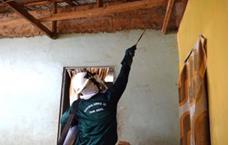
This blog post is a guest blog from Aimee-Louise Whalley who is undertaking a MSc at the Liverpool School of Tropical Medicine. The post explores the role of surface type in the efficacy of IRS. Read more > Decade of Health 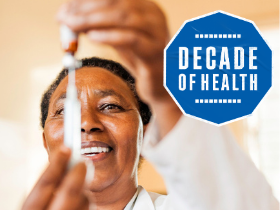
The Decade of Health is a campaign by organizations'' across the UK who are working to make the world healthier and safer, through innovation and collaboration. As part of this campaign IVCC''s very own Ingrid Etoke has been named as a key figure changing health in the UK. Read more > New PublicationsVector Control: 10 Challenges, 10 Solutions 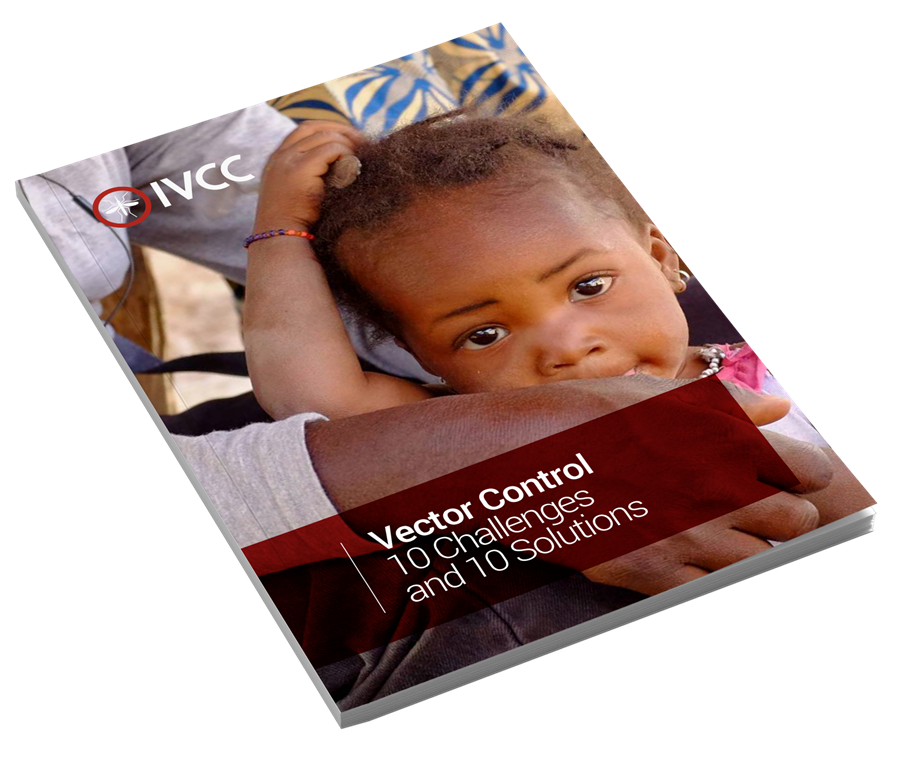
What are the main challenges facing vector control, and how do we solve them to eradicate malaria? Our new publication explores Dual AI nets, outdoor transmission, the future of IRS and more. View the publication online >
Vector Control News and ResourcesPodcast: How Malaria Parasite Survive During the Dry Season 
Researchers find that a change in parasite behaviour may help them survive in the human host during the dry season, and the importance of preventative malaria treatment in school children is demonstrated in a recent review. Listen to the Podcast > Goodbye Malaria, Masks Initiative – For Communities by Communities 
Implementing Malaria Control in South Africa, Goodbye Malaria recently co-authored a review on practical, innovative ideas to ensure the timely implementation of malaria control without increasing the risk of COVID-19 to healthcare workers and communities within the MOSASWA (Mozambique, South Africa and Eswatini) region. The review has been published in the South African Medical Journal. Read more > TEDxAberystwyth, Andy Hardy – Drones Gathering Spatial Intelligence for Malaria Elimination 

IVCC
Liverpool School of Tropical Medicine Pembroke Place Liverpool L3 5QA You are receiving this email as your details are in the IVCC database.
Preferences | Unsubscribe
|
|
No images? Click here 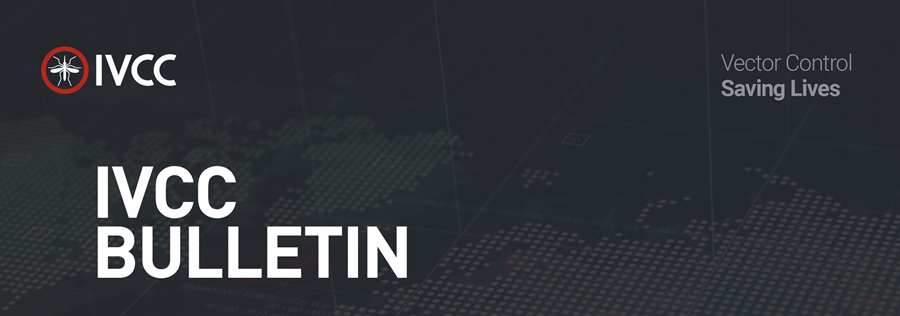
APRIL 2020 IVCC Updates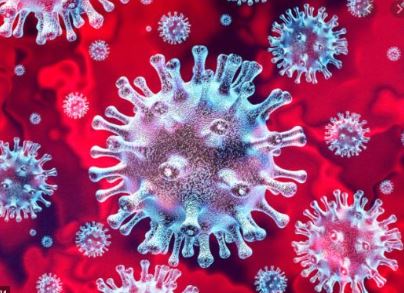
COVID-19, Malaria and IVCC
As the world grapples with the COVID-19 pandemic, there is a renewed awareness of the devastating effects of infectious diseases and the need for robust health and surveillance systems. Efforts to limit the spread of COVID-19 are necessary to allow health care systems to continue to serve their communities during this crisis. At the same time, these efforts must not compromise access to life-saving malaria prevention, diagnosis and treatment services or threaten to reverse decades of hard-fought progress against malaria. Read the full statement > 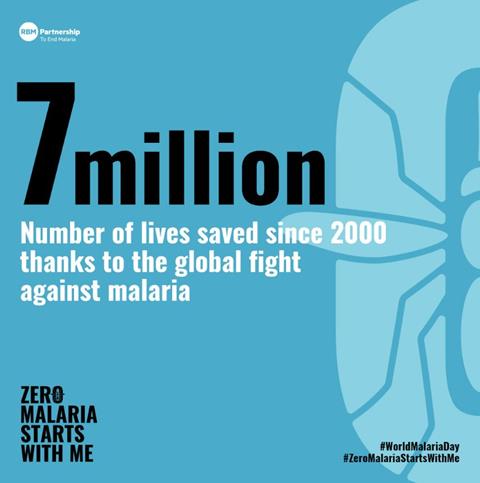
World Malaria Day During World Malaria Day 2020 IVCC supported campaigns from the RBM Parnership to End Malaria, Malaria No More and others. As well as featuring in supplements for The Guardian and Global Cause. Follow our Twitter and LinkedIn profiles to keep up to date and join the conversation. Tech Update 
The IVCC Tech Update is a collection of vector biology and control news, publications and resources published on a quarterly basis. It is primarily focused on Anopheles vectors and a subset of vector control topics relevant to IVCC and its partners. Read more > Gene Drive - Geek Out 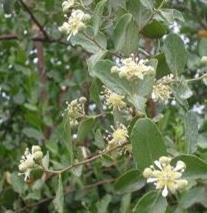
"The subject for this blog is one of my favourites, which is exactly why I decided to go down this tortuous route: Gene Drive! It is based on a pre-print by Vanessa Macias et al. from the laboratory of Jason Rasgon at Pennsylvania State University." This blog looks at how a bit of alchemy is sometimes needed even in advanced genetic engineering. Read more > Accelerating Innovations Blog 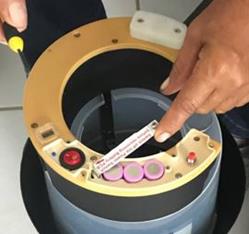
Breakthroughs in disease control have arisen through leaps in understanding and completely new methods of control. IVCC keeps watch for new ideas in vector control and receives many innovative proposals for development and testing of new products. There is a need to choose those most likely to have a strong impact on disease transmission, short time to deployment, low cost of development, high probability of success and good fit with IVCC’s priorities for vector control. Read more > A New Kind of Chemistry 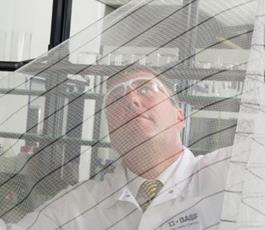
New Nets Project is featured in this article on Insecticide Treated Nets (ITNs). The article also gives a brief history of malaria and the use of mosquito nets, as well as looking at the future of vector control and insecticide resistance management. Read more > Fight Against Malaria Campaign 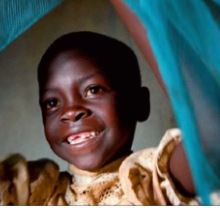
We recently worked with Global Cause on the 2020 Fight Against Malaria campaign. The content is available online and a printed publication will be enclosed within every copy of the Guardian newspaper on 24th May. The campaign featured exclusive content from key thought leaders and industry voices on the importance of stepping up commitment and investment to end malaria. Read more > Accelerate to Zero 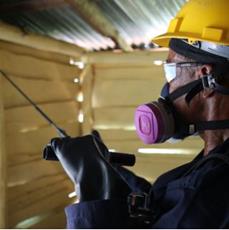
The Haitian National Malaria Control Program (PNCM) are implementing a strategy to accelerate progress toward the elimination of malaria. Among the stakeholders are Bayer who launched an indoor residual spraying (IRS) campaign in rural Haiti, using Fludora® Fusion. This is part of their ZERO by 40 commitment. Read more > 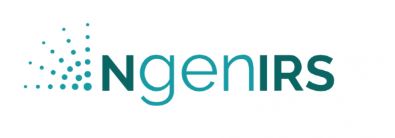
NgenIRS Evidence 
On December 31st, 2019, the Unitaid funded NgenIRS project came to an end. The NgenIRS team, led by IVCC and made up of colleagues from PATH and Abt Associates, worked in partnership with 16 malaria control and elimination programmes across Africa, the US President’s Malaria Initiative (PMI), the Global Fund and three insecticide manufacturers. Due to the NgenIRS project the downward trend in IRS use was reversed and the resulting expansion of use has resulted in significant public health impact, savings in commodity costs
and new evidence showing the cost-effectiveness of third generation IRS (3GIRS). Visit our website to download the materials > 
New Nets Project and COVID-19 Whilst we believe it is crucially important that vector control continues at this time, we are also committed to the health and safety of everyone involved in net distributions. To this end, we are continuously monitoring the situation with COVID-19 and preparing for the implications of it on the New Nets Project (NNP). After some disruption in the production of nets, factories have now reopened and nets should arrive in time for most upcoming campaigns. Planning for the safe distribution of nets is ongoing with project partner The Alliance for Malaria Prevention and upcoming campaigns in Rwanda, Mali, Nigeria, and Mozambique may need to be adjusted to limit gatherings and protect against the spread of COVID-19. Within the effectiveness pilot activates, all in person data collection (anthropological, entomological, and durability monitoring) is on hold until it is deemed safe for the collection of that data to resume. Precautions to limit person to person contact are also being taken as part of the randomized control trial being undertaken in Benin. Stay up to date with NNP > New PublicationsEvidence Base for New Dual-AI Nets 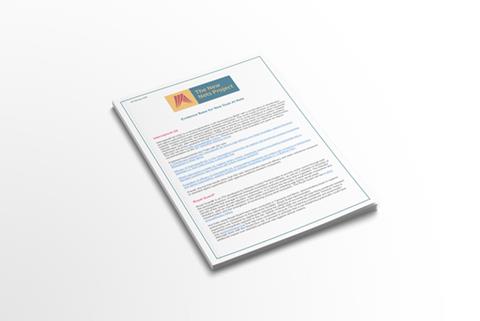
Interceptor® G2 (IG2) is a second-generation LLIN developed by BASF with a combination of chlorfenapyr and alpha-cypermethrin to control insecticide resistant mosquitoes. Royal Guard® is an ITN developed by Disease Control Technologies to provide vector control through both the personal protection of traditional mosquito knockdown and mortality, as well as a reduction in fecundity of any mosquitoes that manage to survive exposure to the products pyrethroid active ingredient. This document outlines the current evidence base for these nets. Read more >
NgenIRS Project Overview 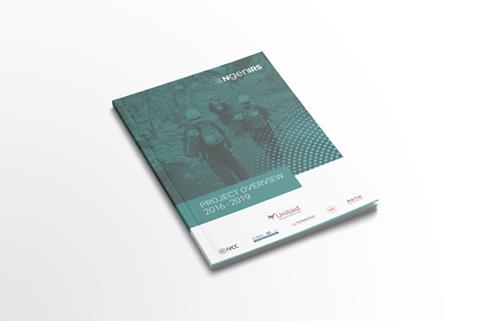
On December 31st, 2019, the Unitaid funded NgenIRS project came to an end. Due to the NgenIRS project the downward trend in IRS use was reversed and the resulting expansion of use has resulted in significant public health impact, savings in commodity costs and new evidence showing the cost-effectiveness of third generation IRS (3GIRS). In this Overview we look at the project aims, actions and impact. Read more > ATSB Efficacy 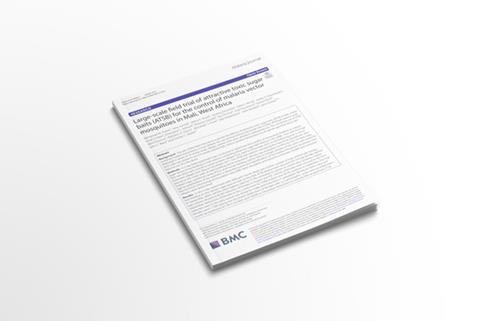
The aim of this field trial was to evaluate the efficacy of attractive toxic sugar baits (ATSB) in Mali, where sustained malaria transmission occurs despite the use of long-lasting insecticidal nets (LLINs). ATSB bait stations were deployed in seven of 14 similar study villages, where LLINs were already in widespread use. The combined use of ATSB and LLINs was tested to see if it would substantially reduce parasite transmission by Anopheles gambiae sensu lato beyond use of LLINs alone. Read more > EventsNgenIRS Experts Interviewed In June, IVCC and PATH will host a virtual Interview of Experts focused on the NgenIRS programme and evidence, particularly on the impact of layering IRS and LLINs. Ellie Sherrard-Smith (Imperial College London), Joshua Yukich (Tulane University), Alonso Sergi (ISGlobal) and Rose Zulliger (PMI/US Centers for Disease Control and Prevention) are confirmed as speakers already. Invitations will be sent when a date is confirmed or you can follow our digital media channels for updates. 
IVCC
Liverpool School of Tropical Medicine Pembroke Place Liverpool L3 5QA You are receiving this email as your details are in the IVCC database.
Preferences | Unsubscribe
|
| Data Name | Data Type | Options |
|---|---|---|


 Arts and Entertainment
Arts and Entertainment Business and Industry
Business and Industry Computer and Electronics
Computer and Electronics Games
Games Health
Health Internet and Telecom
Internet and Telecom Shopping
Shopping Sports
Sports Travel
Travel More
More